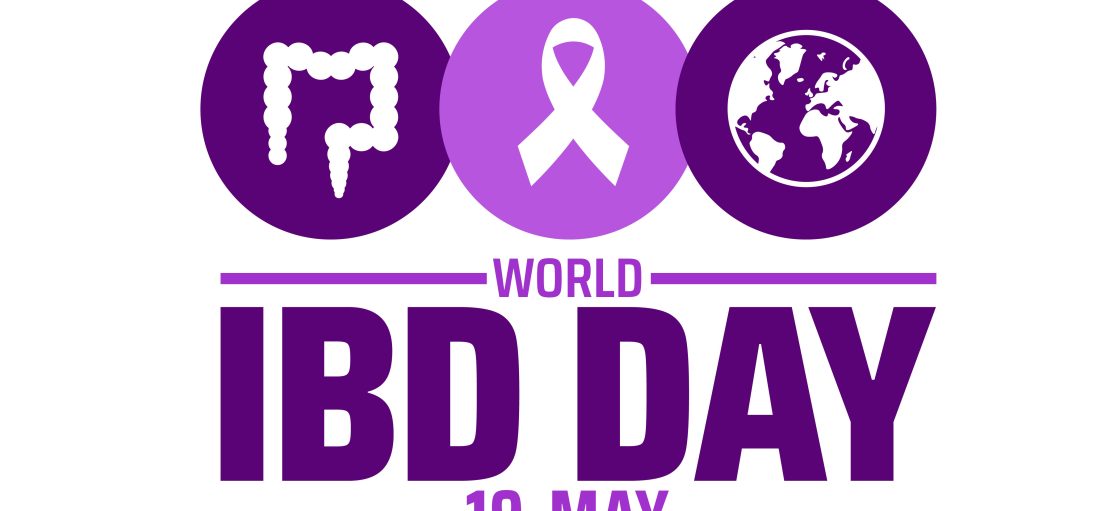By Rocio Castrillon

As someone who has lived with Crohn’s disease for many years and now serves on the ABIM Gastroenterology Board and on the Crohn’s & Colitis Foundation’s National Board of Trustees, World IBD Day offers me a unique moment to reflect — not just on my personal journey, but on how inflammatory bowel disease (IBD) continues to affect patients across the U.S. and around the world.
Recognized each May 19th, World IBD Day raises awareness about Crohn’s disease and ulcerative colitis. As a Latina IBD patient, I’ve come to understand that my experience has been shaped not only by the disease itself, but through the lens of culture, identity and the disparities that influence how patients, like myself, are seen, treated and supported. On this World IBD Day, I’m reflecting not just on the growing global impact of IBD, but on how cultural identity, disparities and stigma influence the patient experience in ways we can’t ignore.
The Rising Incidence of IBD in the U.S. and Globally
IBD is no longer a rare diagnosis. It is now a growing global health issue. In the U.S., it is estimated that over 3 million people are living with Crohn’s disease or ulcerative colitis and globally it is estimated to be 10 million people. Now as many as 1 in every 100 U.S. adults are living with IBD.
There are similar rising rates in developing regions, including Asia, Latin America, and the Middle East. IBD is also increasingly being diagnosed in racial and ethnic minorities, children, and older adults. This burden of the disease is being felt by patients and healthcare providers.
As an IBD patient, I wrestled with the fact that Crohn’s disease wasn’t recognized in my homeland of Peru for many years. With no family history and little cultural awareness of the disease, I was left wondering why or how this had happened to me. Now, in 2025, it’s both validating and heartbreaking to see the rise in IBD diagnoses in Peru. It means more patients are being seen and counted, but it also means a new generation is facing the same uncertainty I once did.
U.S. Specific Challenges in IBD Care
Even in a country with advanced healthcare, living with IBD in the U.S. comes with serious challenges, ones that often go unseen by the public. Diagnostic delays, racial and ethnic health disparities, insurance barriers, and restricted access to appropriate treatments compound the emotional and physical burden of living with IBD.
Despite living in Southern California, with what many would consider strong access to healthcare, I went undiagnosed for over five years. During that time, I endured two debilitating surgeries. I now know that the symptom I initially presented with—perianal fistulas—was a hallmark of Crohn’s disease. But the colorectal surgeon who treated me at the time wasn’t an IBD specialist. Without a full understanding of the disease context, he recommended surgery that, in hindsight, was not the medically appropriate next step.
I often reflect on those years because they were the most traumatic. Not just because of the physical toll, but because I endured them in silence. I was living with pain, confusion, and shame, and I didn’t yet have the words or the diagnosis to explain it to others. My story is, unfortunately, not unique. Many IBD patients in the U.S., particularly those in racial and ethnic minority groups, face long diagnostic delays and poorer outcomes. Black and Hispanic patients are more likely to receive delayed diagnoses, less likely to be referred to IBD specialists, and more likely to face treatment disruptions due to insurance or socioeconomic factors. [i]
A Global Lens: Stigma, Silence, and Limited Access
One common thread in the U.S. and globally are the cultural taboos, social stigma and lack of education about chronic digestive diseases. Stigma often adds an extra layer of silence. Oftentimes, digestive symptoms are considered too private or too shameful to discuss, even with family and friends. Worse yet, patients may avoid speaking up, even with their own providers, while suffering silently in pain. That silence can delay diagnosis for years, just as it did for me, even here in the U.S., but with even fewer resources or options available to intervene.
Why World IBD Day Matters: Looking Beyond the Gut, Across Borders and Disciplines
World IBD Day is even more critical to discuss and to share openly and publicly because awareness and visibility leads to research, advocacy, funding, and policy changes. Awareness isn’t just about knowing the name of the disease(s), but it’s also about dismantling stigma, improving equity, and acknowledging that no one should feel like they must suffer in silence.
It reminds us that IBD does not start and end in the gut. For so many patients, like me, it touches every part of our lives: the joints that ache, the eyes that burn, the fatigue that can’t be explained and the anxiety that lingers long after symptoms subside. Along with the physical symptoms, patients also face the challenging experience of navigating stigma, cultural silence, delayed diagnoses, and broken healthcare systems.
If you’re a clinician, whether you treat gastrointestinal conditions or not, I hope World IBD Day can serve as a reminder that IBD is a whole-person disease. We need not only your medical expertise, but also empathy, cultural humility, and a willingness to look beyond what’s visible. A patient’s pain may not show up in labs or scopes, and we will rarely fit into the proper diagnostic codes. But IBD is real, and it is often shaped by external forces beyond our own genes – race, language, geography and access.
World IBD Day matters because every patient matters, whether they live in a major metropolitan U.S. city, a rural town without an IBD specialist, or a country around the world that is just beginning to recognize and diagnose IBD.
IBD patients are not just “stories” but rather should be partners in care and a vital part of the evolving landscape of IBD. As a patient and ABIM Gastroenterology Board member, I know I carry both lived experience and responsibility to help build a future where every person with IBD is recognized, supported, and treated with dignity, no matter where they are.
World IBD Day reminds us of the work ahead—and the power of sharing our stories to help drive it forward.
[i] https://www.everydayhealth.com/crohns-disease/hispanic-americans-wait-longer-for-an-ibd-diagnosis/



